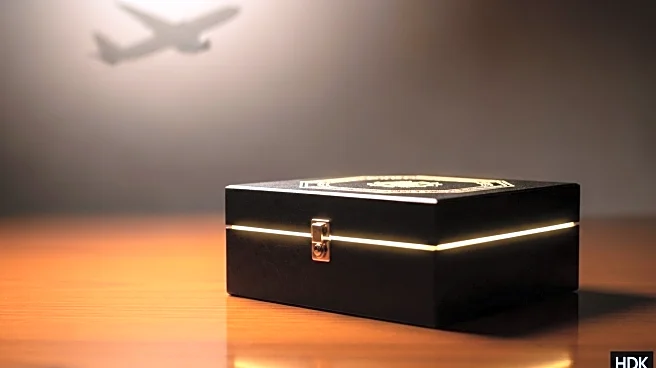What's Happening?
Families of four passengers who died in the June 12 crash of an Air India Boeing 787 have filed a lawsuit in Delaware Superior Court against Boeing and Honeywell. The lawsuit alleges that faulty fuel switches, manufactured by Honeywell, were responsible for the crash that killed 260 people. The U.S. Federal Aviation Administration had previously issued an advisory in 2018 recommending inspections of the fuel cutoff switches, but did not mandate them. The lawsuit claims the switches were positioned in a way that made them susceptible to accidental activation, although aviation safety experts have disputed this claim. The lawsuit seeks unspecified damages for the victims' families, who are citizens of India and Britain.
Why It's Important?
This lawsuit highlights ongoing concerns about aircraft safety and the responsibilities of manufacturers in ensuring the reliability of their components. The case could have significant implications for Boeing and Honeywell, potentially affecting their reputations and financial liabilities. It also underscores the importance of regulatory compliance and the role of the FAA in overseeing aircraft safety standards. The outcome of this lawsuit may influence future legal strategies in aviation accident cases, particularly regarding the liability of manufacturers versus airlines.
What's Next?
The lawsuit is the first in the U.S. related to this crash, and its progress will be closely watched by legal experts and aviation industry stakeholders. Boeing and Honeywell's responses to the allegations, as well as any potential settlements or court rulings, could set precedents for similar cases. The families' pursuit of justice may also prompt further investigations into the crash and the safety protocols of airlines operating Boeing aircraft.









